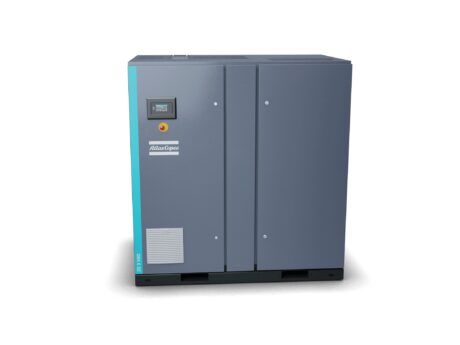Circular economy of plastics: energy saving in the polypropylene recycling. Consumption reduction by over 300,000 kWh/year by using a low-pressure Atlas Copco compressor
The circular economy of plastics, that is to say the recycling of this material, is strategic for the environment and in Italy: today the datum about the quantity of recycled packages in comparison with what released for consumption already exceeds the minimu legal target set for 2025 (amounting to 50%) and strictly approaches 55% established for 2030. Moreover, the plastic industry is a sector where paying utmost attention to the energy saving is fundamental.
A case-study from a South Italy company
Hereaftter the experience of a South Italy company that, using a low-pressure Oil-free compressor by Atlas Copco, has achieved a saving of over 300.000 kW/year in the phase of the pneumatic transport of polypropylene chips, a plastic material that can be recycled easily. It is in fact a material that, transformed into granular form, is suitable for being transported pneumatically: it is a kind of transport to transfer materials from one point to another through closed pipelines, highly diffused in industrial ambit and where the air compressed system plays an important role and can affect the efficiency of the whole manufacturing process.

We should not forget, in fact, that the energy consumption represents over 80% of the lifecycle cost of a compressor and that, in general, production systems of compressed air constitute 10% of the industrial consumption of electric energy and in some plants they can make up even 40% of the energy bill. Speaking of pneumatic transport again, it is then important to identify correctly the type of compressor to be used and the most suitable pressure for the application kind. In this case, after an engineering analysis carried out by Atlas Copco, they have chosen a low-pressure 2.5 bar(g) compressor that has enabled the 40% energy saving in comparison with the use of air taken from a medium-pressure 4 bar(g) line, with an energy saving exceeding 300,000 kW/year.
Consumption reduction by over 300,000 kWh/year
On the other hand, even if the definition of pneumatic transport is quite simple, finding the optimal system and sizing it correctly may be complicated. In this case, the polypropylene to be recycled is shredded, washed and recycled through a hot process in which the material is melted and formed to attain the right profile and then mixed with virgin plastic. The use of an Atlas Copco ZE P compressor, with inverter and heat exchanger integrated, has allowed transporting chips in pressure and dense phase, then at low speed and with a low air/product ratio, if compared with other kinds of pneumatic transport. Moreover, the synergy with a refrigerating cycle has allowed preventing the wetness creation during the transport process that would have caused material packing problems, with the risk of tube clogging and chip damaging.

The screw compressor of the premium ZE P range has been purposely ideated for pneumatic transport operations in the sectors that need Oil -free Class 0 air and the ISO 22000 certification. Conceived with the aim of reducing energy consumptions and the emissions into the environment, it is supplied with heat exchanger, starter valve and Touch control panel that allows monitoring the compressor’s performances, further decreasing the total cost of ownership by 15%.
«It was an interesting experience that has allowed demonstrating how, for an efficient handling, it is necessary to size attentively pressure and flows of compressed air. Using the suitable compressor for each application means reducing energy consumptions, with clear economic and environmental benefits», states Alessandro Artuso, Business Development Manager Low Pressure of Atlas Copco.
To learn more: https://www.atlascopco.com/it-it/compressors/compressori-oil-free-bassa-pressione



